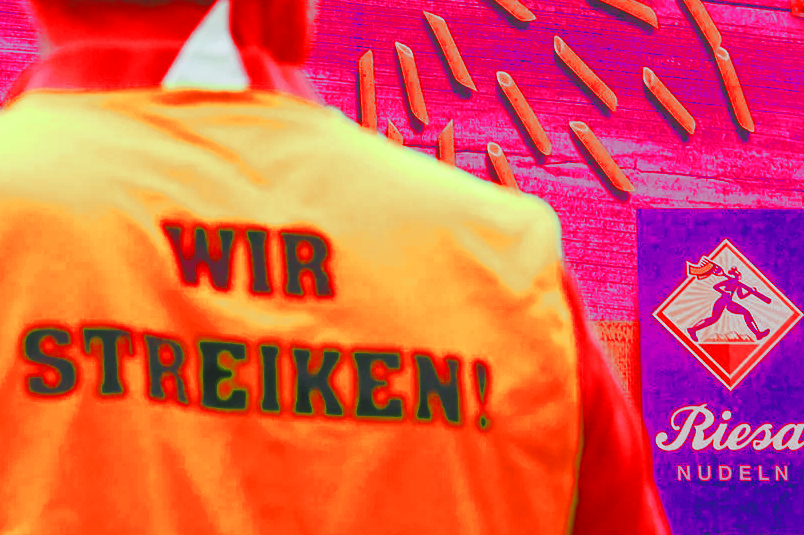Since the beginning of October, production has been at a standstill at 'Teigwaren Riesa'. The once largest and famous pasta factory of the GDR is located in the district of Gröba, where in a harbor the Döllnitz flows into the Elbe, of the city of Riesa, a city of just under 30,000 inhabitants in the Saxon district of Meißen. At 12.51 euros, workers there earn only marginally more than the federal minimum wage.
Even foremen at Riesa generally earn only a few euros more per hour. The owner family around Irmgard Freidler from Swabia has been lining its pockets for years, with profits in the millions, while those who toil for their wealth can barely make ends meet.
The around 150 workers are determined. Last year, management was stubborn at first, but relented after three weeks of strike action. However, the demands now being made of two euros more per hour are by no means a great deal, which one might think in view of the stubbornness on both sides, since the demanded 15% or so would ultimately not mean much more than 2,000 euros gross per month.
In the person of Dietmar Bartsch, member of the Bundestag for the Left Party, this same party is trying to use the struggle of the workers in Riesa for a few votes. Just as the workers have little to expect from the Food, Catering and Allied Workers' Union (NGG), Bartsch's words will not really do them any good. On November 9, the workers from Riesa will demonstrate in front of the Reichstag in Berlin. Whether they will find open ears with the ladies and gentlemen federal politicians is more than questionable. What all the movement shows, however, is that determination and courage, even on a small scale, can be quite uncomfortable for those who preach an "always on" attitude.
A united working class will be invincible, and it must create its own organizations. Its own organizations that do not intercourse with the enemy, but are fundamentally opposed to the existing system of exploitation and oppression.

